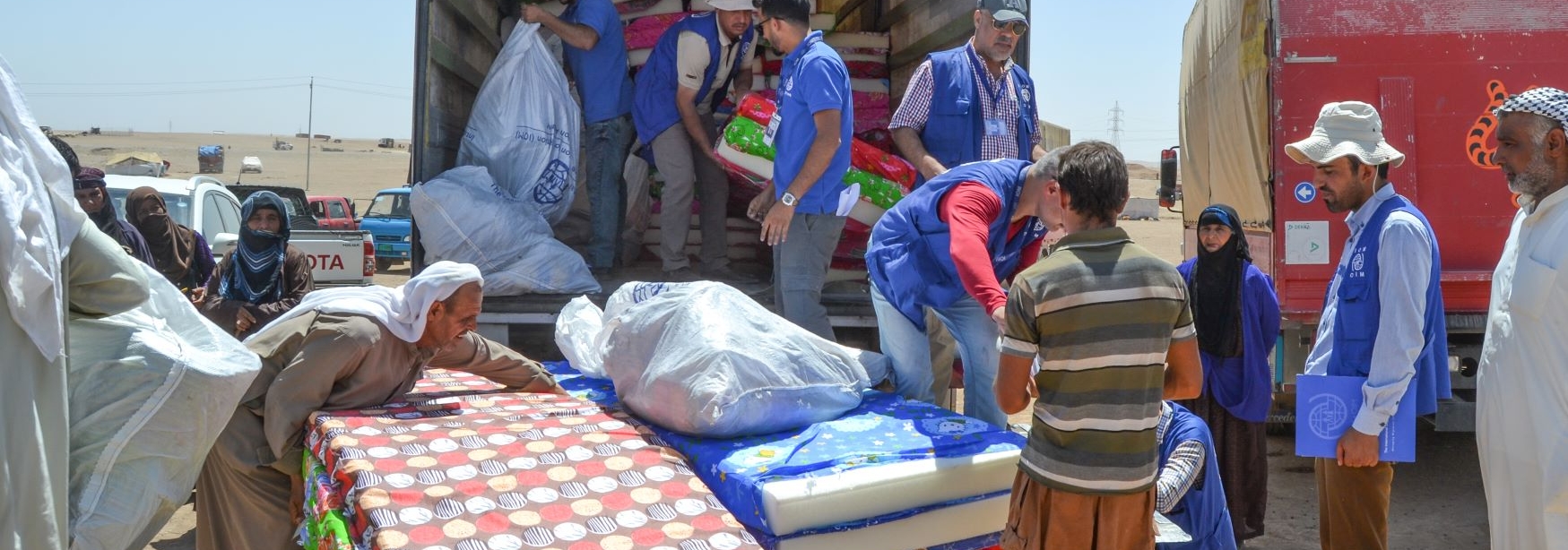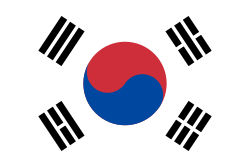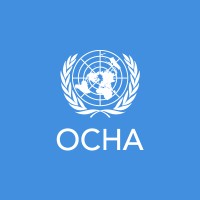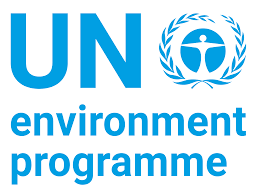IOM Vision
IOM Iraq strives to save lives, alleviate suffering and maintain human dignity in Iraq through supporting safe and dignified living conditions for people in displacement, while supporting progress towards durable solutions tailored to local needs and priorities, based on robust data and analysis. IOM will continue support to the Government and civil society actors to create conditions for the revitalization, stabilization and reform of social, economic and political life.
Objective
Saving lives and protecting people on the move
In 2020, within IOM’s purview, humanitarian support will be needed for three population groups: (1) IDPs who remain in displacement, including IDPs blocked from returning or unwilling to return, IDPs at high risk of protracted displacement, and unsuccessful returnees. The majority of IDPs in acute need will be out-of-camps (428,950), while those in camps (196,800) still are in need of assistance (HRP 2020); (2) vulnerable host communities in areas of displacement and communities of return where services are inadequate or overstretched; and (3) IDPs who have returned, but are facing severe conditions such as residual insecurity, damage to properties and public infrastructure, limited access to services and livelihood opportunities, and fractures social relations.
With the evolving context in Syria, IOM will also support refugees in need of urgent assistance in Iraq. For more details, see IOM's Syria Regional Refugee & Resilience Plan 2020.
IOM will support 10,000 IDP households in camps with access to basic household items to meet their replenishment needs, through in-kind and cash-based interventions. As there are minimal new arrivals expected in 2020, and with the majority of IDPs in the camps already able to access basic kits, the focus will be given to replenishing the underserved camps and informal settlements, where the needs are the most acute. IDPs impacted by the 2019-2020 camp closure and consolidation processes and those in need of immediate support will be targeted.
IOM will support 10,000 vulnerable IDP households out of camps with access to basic household items, through cash-based interventions and in-kind support, in areas where markets are dysfunctional or not established. Districts of intervention are prioritised through vulnerability criteria and intentions of returns from the IDPs. Assistance will include the following:
- Cash vouchers for NFIs to vulnerable IDPs out of camp (for basic and seasonal items), where markets are functional;
- In-kind basic NFI kits to support those with minimal access to markets (the composition of basic NFI kits is in line with the National Shelter-NFI Cluster);
IOM will assist 25,000 IDPs with logistics to transport their belongings to their homes or intended locations, including during camp closure and consolidation activities. Transportation assistance and emergency NFI support will also be offered to refugees crossing the border from Syria, in coordination with UNHCR and relevant clusters.
IOM will provide shelter assistance to 2,000 vulnerable IDP households, returnees and related communities living in unsafe or undignified conditions due to lack of, damaged or destroyed housing. Humanitarian shelter interventions will:
- Improve the living conditions of vulnerable households through rehabilitation of damaged housing (category 1 and 2, according to Shelter-NFI Cluster guidelines - houses that have suffered small to medium war damage, including the destruction of walls, windows, fire damages, etc.) to support them to live in conditions of safety, privacy and dignity;
- Provide emergency assistance to vulnerable families living in critical or substandard shelters in informal sites and areas of return, through in-kind or emergency cash assistance. Special focus will be put on improving the safety and security conditions of those shelters.
IOM will prioritize, whenever feasible, an owner-driven cash-based approach for shelter interventions to allow beneficiaries to select material and interventions best adapted to their needs while building communities' capacities to take over repair work. Rehabilitation of houses will only target homeowners and the owners must adhere to the housing, land and property (HLP) conditions and provide proof of ownership prior to receiving assistance.
IOM will provide camp management support to the Government as camp management actor in Anbar and Baghdad governorates' IDP camps. IOM will focus on:
- Improving living conditions in camps through maintenance and critical upgrades;
- Implementing site risk reduction interventions, with a focus on safeguarding the protection of camps' populations;
- Encouraging community participation and maintaining mechanisms to ensure accountability to affected populations in the camps;
- Facilitating coordination of all actors on the camp for improved services;
- Building capacities of government actors on CCCM and advocating for well-planned and dignified camp consolidation and closure process, and respect of the IDPs' right of movement.
In addition to its support of formal IDP camps, IOM will provide CCCM assistance to IDPs living in informal sites in Ninewa, Anbar and Salah al-Din governorates. Support will focus on the implementation of risk reduction activities, mapping and coordination of the sites, referral and support to sites' population, and community mobilisation.
Many of the IDPs still living in camps are facing important barriers to return to their area of origin, and are facing increasing pressure to leave due to the Government's plans for consolidation and closure of IDP camps. IOM will assist camps' populations in reassessing their situation and will provide support to voluntary returns (as described in the durable solutions section).
IOM will also provide support to Iraq CCCM Cluster with co-coordination responsibilities.
In line with IOM’s manual on community-based MHPSS in emergency and displacement settings, IOM will provide mental health and psychosocial support (MHPSS) to IDPs, returnees and impacted communities in camps, informal settings and return areas, with a focus on services which ensure a strengthened protection environment in the community.
Activities will focus on:
- Facilitating access to services and other measures to ensure social considerations and safety of beneficiaries are taken into account in service provision, mitigating negative outcomes from difficult living conditions.
- Strengthening family and community support for people who can maintain their mental health and psychosocial well-being if they receive help in accessing this level of assistance. Activities function also as a gateway to build rapport with communities and have proven effective in supporting the identification of vulnerable persons requiring further assistance, who would otherwise not have approached services.
- Providing focused psychological services (individual and group counselling) to support to vulnerable IDPs, returnees, and host communities. Psychological First Aid will be offered to displaced individuals and families in distress.
- Providing psychiatric consultations and clinical psychological consultations to people with pre-existing and/or emerging forms of severe stress, behavioural and relational problems, and mental disorder conditions.
- Strengthening the capacity of civil society and government partners in the field of MHPSS.
IOM will assist IDPs currently in camps in need of transportation to leave the camps, whether due to camps' closure and consolidation processes or on their own decision. Transportation remains an additional challenge faced by IDPs wishing to reach their area of origin due to costs, difficulties in transporting belongings and challenges related to safety and security. IOM will provide those services to IDPs requesting it who are returning from camps to areas of origin.
In response to the needs of Syrian refugees and host communities as identified by the United Nations High Commissioner for Refugees (UNHCR) led Regional Refugee and Resilience Plan (3RP), of which IOM is part of, IOM will support Syrian refugees populations hosted in Iraq. IOM will provide school transportation services for Syrian refugee students from host communities and camp locations to schools inside and outside of camps in order to facilitate their access to education. IOM also offers transportation to Syrian refugees crossing the border to enter Iraq; transportation is offered from the border points to the refugee camps, after prior registration and health screening.
Recent returnees are facing several challenges constituting of barriers to safe and dignified living conditions, including destroyed or damaged housing and lack of basic services, such as clean water. IDPs living in precarious shelter, such as substandard or critical shelters, are also facing a lack of access to clean water, which can lead to life-threatening sanitary and health problems.
As an integral component of its Shelter Programme, IOM will contribute to improving access to safe water and reduce risks of water-borne diseases through supporting 2,200 vulnerable recent returnee, IDP and host community households in areas of high return with improved access to clean water supplies in their shelter, as well as lockable ablution areas. IOM’s Communication with Communities Programme will also contribute to promoting good hygiene practices among the supported households and communities.
In the Iraq Humanitarian Response Plan (HRP) 2020, protection was identified as a cross-cutting issue, rather than a separate humanitarian consequence. IOM Iraq’s protection objective of saving lives and responding to needs through humanitarian assistance and protection interventions mirrors the protection needs identified through the Protection Cluster and the HRP. IOM Iraq’s protection program seeks contribute to fulfilling the needs and upholding the rights of migrants, displaced persons and affected populations , both in camps and out of camp locations by:
- Providing specialized case management services at the individual and household levels, involving assessment and planning, referral to services, emergency cash or in-kind assistance, and follow up. This includes, but is not limited to, GBV case management services.
- Raising awareness on trafficking in persons in humanitarian context among at-risk communities and frontline service providers, such as humanitarian actors and health workers.
- Undertaking community engagement and sensitization in camp and out of camp locations, and strengthening community-based protection mechanisms.
- Undertaking protection risk assessments and protection monitoring; facilitating community-led discussions; and identifying clear referral pathways in camp and out-of-camp settings to enable trend analysis and systematic identification of protection risks and concerns, in order to strengthen evidence based programming.
- Ensuring a robust approach to preventing and responding to sexual exploitation and abuse (PSEA), including appropriate investigation and response mechanisms, and ensuring that all staff and partners are trained on case identification and referral mechanisms.
- Ensuring that protection is mainstreamed in all of IOM’s interventions through training of staff on protection’s principles, adapting interventions’ design to better include the needs of vulnerable groups, including people living with disabilities as outlined in IOM Iraq Disability Inclusion Strategy, providing the tools to better address cases and align with data protection principles, and continue effort in prevention of sexual exploitation and assault for staff, partners and beneficiaries.
IOM provides life-saving primary health services, referral and health facility support, in addition to mental health and psychosocial support, to conflict-affected IDPs, returnees and home and host communities, in camps, in informal displacement sites and in areas of return. The health programme focuses on:
- Maintaining and strengthening primary and emergency health-care services in IDP and refugee camps, including providing caravans and medical equipment; training of medical personnel; primary healthcare and complementary services aligned to gaps identified (such as pediatric, obstetric-gynecologic, laboratory and investigation services, among others) to cover identified gaps; emergency medical services; emergency and non-emergency referrals; specialised services, such as for persons living with disabilities; and transportation from camps to secondary or tertiary care facilities in locations where those services are not available; health promotion and awareness-raising.
- Improving access to health-care services to vulnerable populations in isolated or underserved areas of return and informal IDP sites through joint mobile medical clinics. Services include medical consultations and primary health care; non-emergency and emergency referrals to health facilities; specialised services and referrals, such as for disabilities and gender-based violence; tuberculosis services in targeted locations; community-based health promotion.
- Supporting health facilities in crisis-affected governorates and areas of return in Ninewa, Salah al-Din, Anbar, Kirkuk and Dohuk governorates. In close coordination with the local health authorities and partners, including providing equipment, supplies, medication and general maintenance, small rehabilitation of infrastructures and procurement of medical devices will be offered.
- Improving capacities of health teams from IOM, Department of Health and partners operating in camps and out-of-camps, by enhancing knowledge and technical expertise on different aspects of emergency health in the field, including the WHO/MoH early warning alert and response network system, communicable diseases control, and all other assessed needs.
IOM will support 10,000 vulnerable IDP households in out-of-camp locations with cash assistance through:
- Multi-purpose cash assistance (MPCA) to the most vulnerable IDPs in informal sites and other out of camp locations;
- Emergency cash support to the vulnerable IDPs affected by camp consolidation and closure, natural disasters or other emergency situations leading to displacement.
Unrestricted and unconditional MPCA will also be used to assist the most vulnerable new and existing refugee households, in coordination with UNHCR and aligning with the vulnerability assessment targeting in urban areas. IOM may use the assessment results collected by UNHCR or conduct a joint or individual assessment if needed to ensure a consistent and coordinated approach towards assisting the most vulnerable households through a monthly MPCA assistance for a period of 12 months.
IOM Displacement Tracking Matrix (DTM) is an information management system to track and monitor population displacement during crises. Composed of a variety of tools and processes, the DTM regularly captures and process multi-layered data and disseminates a wide array of information products that facilitate a better understanding of the evolving needs of displaced populations. DTM products allow IOM and partners to track locations of IDPs and returnees, assess their intentions and give an overview on the severity of the conditions in their areas of displacement or return, among other. Data is collected through IOM’s Rapid Assessment and Response Teams (RARTs), composed of over 100 staff members deployed across Iraq. The DTM also has the capacity to activate “Emergency Tracking”, which provides timely data on the number of individuals displaced due to a recent or emerging crises such as drought, flood, conflict, etc. The Emergency Tracking is activated on an ad hoc basis to gather, consolidate and disseminate baseline information through daily/weekly updates.
Objective
Driving solutions to displacement
In 2020, IOM will: (1) assist IDPs still living in camps better assess their situation and support safe and sustainable voluntary returns; (2) support returnees and communities in areas of return to access basic services, livelihoods, safety and security; (3) provide assistance to survivors of human rights violations; and (4) contribute to the capacity-building of government authorities, civil society organizations and NGOs to facilitate community stabilization and resume services.
IOM will provide assistance to survivors of human rights violations arising from the conflict. Activities include:
- Case management and referral to specialised services;
- Services related to reparations (see Activity Area Reparations below);
- Assistance in protection, reintegration, social cohesion, and recovery, including through MHPSS (specialised and community-based) programming.
Basic medical services are lacking or inadequate in areas of return, thus impeding safe and sustainable reintegration, and forcing returnees and wider communities to endure long journeys to access services. IOM will contribute to improve access to primary healthcare services through:
- Rehabilitation of primary healthcare centres;
- Capacity-building of health professionals, including on referral mechanisms and pathways for mental health cases;
- The provision of comprehensive services (such as non-emergency referral, male and female ultrasound, eye care services, laboratory investigations, services related to disabilities, etc.).
IOM will implement activities including support at the individual, family and community levels, contributing to wider efforts to mend social fabrics and strengthen social cohesion. Trainings and other support are provided to facilitate the integration of MHPSS in conflict transformation and mediation as well as in livelihoods and development programmes. For this purpose, IOM's Manual on Community-based Mental health and Psychosocial Support in Displacement and Emergencies on the integration of MHPSS with livelihoods and MHPSS with conflict transformation and mediation will provide guiding principles.
IOM will address conflict vulnerabilities and support Government-led processes through projects related to disengagement, dissociation, reintegration and reconciliation of former, self-disengaged associates. Programmes will include community-based conflict management, human security interventions, and institution building intended to reduce or mitigate the drivers of conflict.
IOM will run capacity-building workshops for government officials from the Federal Government of Iraq, the Kurdistan Region of Iraq, and for CSOs and NGOs, and will organize training trips to learn from reparations programming in comparable contexts. IOM will advocate for the right to reparations through awareness-raising programming and information campaigns. This will include policy guidance, expert advice and technical support to Governments and local and international stakeholders to promote the transparent delivery of individual or collective reparations measures.
Returnee households or households wishing to return often face challenges related to housing, land and property (HLP) issues, because of lost or destroyed official papers, houses being occupied by another household or general lack of access to administrative services in their areas or return. To complement the other interventions in facilitating safe, dignified and sustainable return and reintegration, IOM will provide HLP-related assistance to beneficiaries alongside housing-related interventions. HLP support includes both representation and information counselling and can be provided either through existing joint community-resource centres or in other forms adapted to the context of intervention and available administrative services.
IOM will also support individuals and build the capacity of civil society organisations, including through the referral to legal support and by providing policy guidance, expert advice, and technical assistance for HLP rights, including, but not limited to, restitution.
IOM will contribute to addressing the main barriers to safe and sustainable returns and support IDPs and returnees in achieving durable solutions, in partnership with the GoI and in response to the rapidly evolving dynamics in Iraq. IOM's durable solutions strategy aims at providing 12,300 IDPs, returnees and households in areas of return with:
- Improved access to safe, dignified and sustainable housing;
- Facilitated access to services, through the rehabilitation of key community infrastructure, including roads, markets, electricity grids and water networks, public buildings, health centres, schools or any other project benefiting both the community and helping to resume economic activity;
- Increased sustainable livelihood opportunities, including through vocational and business trainings, and support to businesses that were successful before the conflict and those which show potential for job creation. The selection of businesses builds on IOM‘s robust market assessment methodology and due diligence process developed in the context of the Enterprise Development Fund (EDF);
- Reintegration services to respond to the needs of returnees, IDPs and affected communities to support recovery and stabilization approaches by linking affected communities with humanitarian and recovery services.
These operational activities are complemented robust advocacy, coordination and strategy development as part of IOM’s contributions and inter-agency leadership. This includes, among other issues, IOM’s continued leadership of the Returns Working Group (RWG), development of the Durable Solutions Network (DSN), support to sub-national durable solutions strategy development and other issues. Notably, IOM and partners continue to support advocacy efforts on durable solutions beyond return including local integration and settlement in third locations.
Additionally, and beyond durable solutions as such, IOM plans to support 700 Syrian refugees with a range of livelihoods activities, including job placement schemes, cash grants for small business creation and expansion, entrepreneurship support, and cash-for-work opportunities; and carry out education-related activities, including school rehabilitation and transportation support. These activities act as transitional solutions during the time they spend in Iraq.
IOM’s community stabilization programming in Iraq seeks to address drivers of instability at the community level in order to prevent the country from backsliding into conflict and establish the foundation for longer-term recovery. The programme comprises six integrated pillars – social cohesion, MHPSS/protection, livelihoods, community service projects, support to the reintegration of ex-associates, and peacebuilding – and aims at:
- Strengthening government capacities to perform core functions and bringing relevant government entities together with communities in a way that increases participatory decision-making, strengthens mutual trust, and builds accountability;
- Promoting social cohesion and enabling the communities to manage local conflicts and promote a culture of peace, especially through empowering at-risk youth to participate in the society in a productive, constructive and peaceful manner, and fostering community reconciliation;
- Increasing confidence in public institutions through measures to improve community safety, access to civil documentation, housing, land and property restitution, basic infrastructure, and access to quality healthcare services;
- Increasing access to a dignified living space and basic services, and supporting people in need of social protection;
- Increasing access to livelihoods through cash-for-work and vocational training, to ensure income for vulnerable households;
- Capacitating state and local governance, and promoting non-violent political processes, civic education, and social policy development.
Objective
Strengthen preparedness and reduce disaster risk
IOM will support the Government of Iraq, including national and local authorities, and community leaders through trainings and technical assistance to better equip them to deal with disaster management to reduce risks facing Iraq. In addition, IOM will also support efforts to include and mainstream preparedness and risk reduction for new displacement and humanitarian crises in ongoing and planned efforts of the Government and non-governmental actors to coordinate and discuss issues of concern for Iraq.
Based on comprehensive needs assessments and requests from government authorities and civil society organizations, IOM will build their capacities on disaster risk management, preparedness and response, in line with humanitarian principles. IOM will support the Government, including national and local authorities, civil society organizations and community leaders through trainings and technical assistance to better equip them to include emergency preparedness and response plans to face future displacement whether due to conflict or natural disaster, including:
- Mapping of risks;
- Tracking and information management for more effective coordination;
- Logistics and warehousing;
- Site planning and emergency coordination with national and international actors.
People facing protracted displacement, new displacements and returns often require mental health and psychosocial services (MHPSS) in order to support their mental health, and prevent neurological or substance use disorders, among others.
IOM's MHPSS Programme will support - through its role as chair of the Working Committee on Capacity Building and HR Management nationally - the different service providers to develop a more practical and sustainable framework for capacity building and supervision of local human resources in the field of MHPSS at different layers of interventions (including for psychologists, social workers, and community mobilizers). Activities will be guided by IOM's Manual on Community-Based Mental Health and Psychosocial Support in Emergencies and Displacement.
Iraq
The map used here is for illustration purposes only. Names and boundaries do not imply official endorsement or acceptance by IOM.
Figures are as of 31 December 2023. For more details of IOM's operational capacity in country, please see the IOM Capacity section.





















